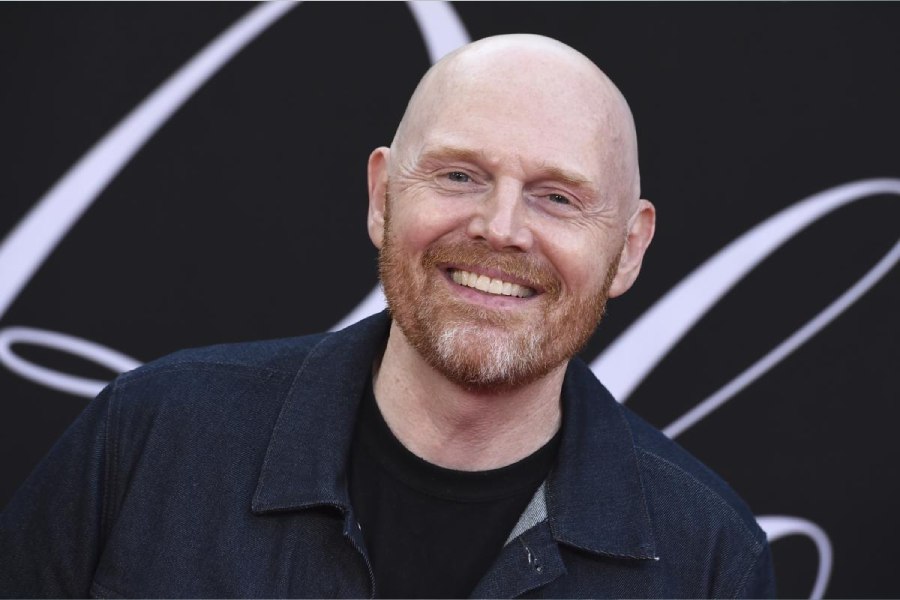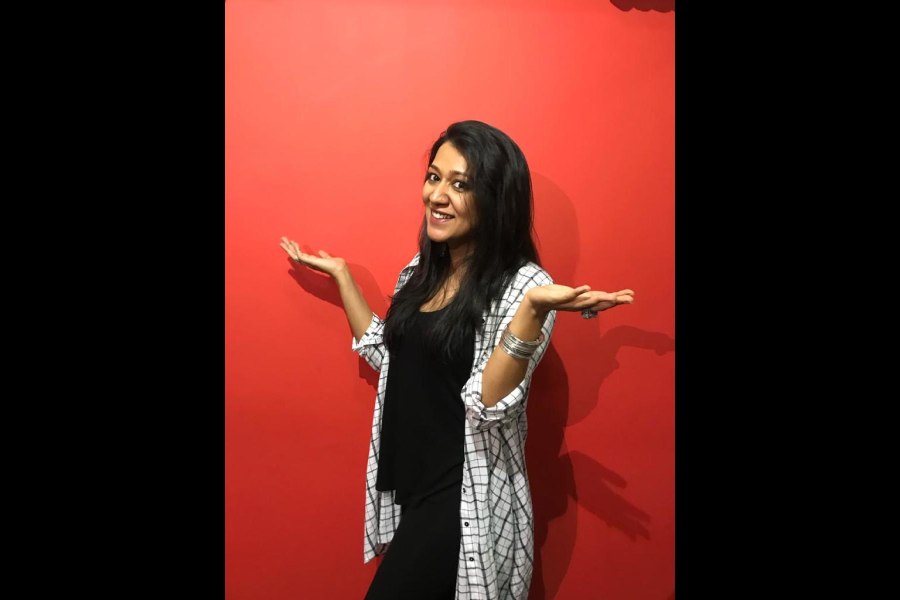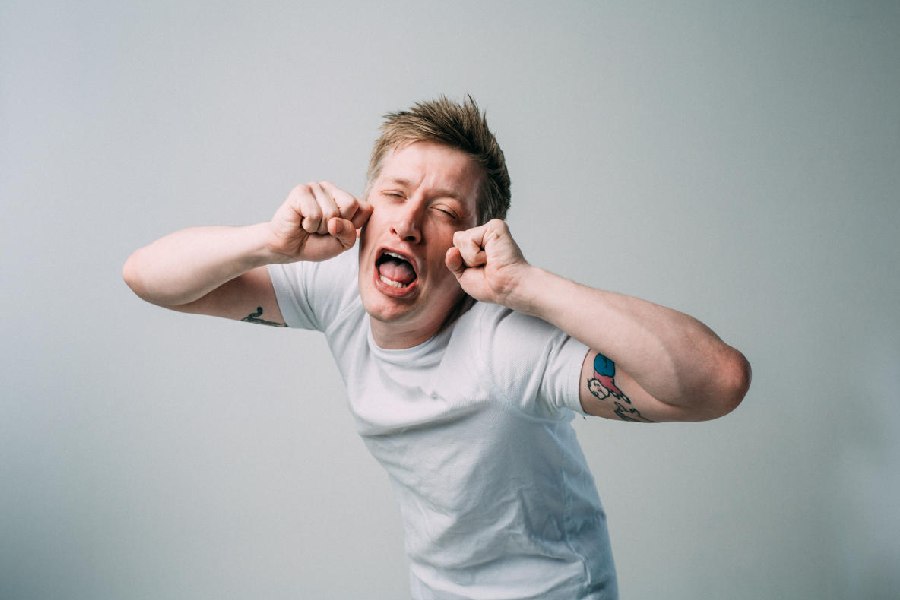Comedy is something that doesn’t boom or burst. It gets floating legs while chilling in a recliner. At least that’s what the smart jokes of Scottish comedy superstar Daniel Sloss end up doing. After a successful tour of India last year, the man is back, this time covering Delhi, Mumbai, Bengaluru, Goa, Pune, Chennai, Hyderabad and Calcutta (March 24 at Kala Mandir). Making the tour possible is DeadAnt Media and its new live initiative, The Loop, which wants to “create space for laughter, provocative comedy, and cultural dialogue throughout India”. We emailed Sloss for an interview and this is what he told us when he hit the reply button.
What did you enjoy about India during your first tour and what are you most looking forward to this time?
I really enjoyed the audience more than I thought I would. Not that I was expecting them to be bad, but I thought there would be more gaps in the knowledge of certain references. I felt like there would be a bit more of a language barrier than there was. I guess I was very naïve to how successful standup already is in India, and I just got to follow in the wake of that.
You are travelling to quite a few cities but that means the audience in each city will react differently. Does that make things challenging for you?
Yes, it does, but I also enjoy the challenge. I’ve been doing this show for two years now and I like to find new ways to challenge myself to make sure that it’s still fresh in my head. So going to places where it’s harder to translate can sometimes be very rewarding. At other times it can be very annoying, but, you know, we’ll see.
In India, we are used to stand-up comedians switching between two or even three languages, which is not the case in the UK. Do you enjoy this approach to a show?
Yes, I do enjoy watching Indian comedians do their punchlines in Hindi and their setups in English. It makes the comedy hard to follow but there is something very fun about mixing it up like that. I can somewhat relate to the fact that, you know, if I am getting particularly angry (for a joke), or if I’m performing in Scotland, I have a thicker accent than I do anywhere else in the world.
When we see you in videos or on stage, some of us get that feeling: “This guy makes a living out of writing jokes.” Is there a mundane element when it comes to writing jokes? Is there a process involved?
I don’t really sit down at my computer and just write jokes. I sort of try them out on people first, like my wife. I’ll run stuff by her, and then I’ll sometimes tell my brothers or my parents or my friends, and then sometimes take notes on my phone, actually. I don’t find it mundane though, but I’m very lazy. I only write a new show every two and a half years.
We live in times when people read too much into a joke and there have been occasions, at least in India, when the backlash has been severe. How far are you willing to push your boundaries without worrying about a backlash? How do you tackle trolls?
I’m willing to push boundaries pretty far, but not to break them. I just think it’s a responsibility to see how far you can go. But you do it delicately and with precision. Doing it not with the intention to cause harm, but, you know, just to have fun, just to stretch peoples’ morals a little bit. And I don’t really deal with trolls. I don’t f**kin’ go online really or read online comments much because I don’t respect anyone on the Internet.
Since you travel quite a bit with your shows, what are the biggest challenges with international tours?
The biggest challenge of an international tour is being away from my son and my wife. I used to be able to travel for three or four months at a time and not really give a s**t whereas nowadays, you know, 10 days is my absolute f**kin’ limit. After four days I’m pretty f**kin’ miserable being away. I enjoy comedy but — and no offense to my audiences — my son’s laugh is way better than all of theirs.
In what ways is Daniel Sloss, the performer, different from Daniel Sloss, the person?
I guess I’m more arrogant on stage. I’m certainly confident off it but I’m not an in-your-face piece of s**t. I guess I’m definitely more insecure in real life. I think I’m a nicer person in real life, maybe? I’m much friendlier when I’m on stage. In real life I’ll not talk to anyone but on stage, I’ll talk to people quite happily. And that’s because I don’t have to listen to their feedback. That’s the problem with conversations, other people get input.
What got you interested in standup comedy in the first place and who are some of the comedians you look up to?
I’ve loved comedy since I was about five or six years old. My mum and dad showed me a lot of standups and I didn’t really know what the jokes were about but I just enjoyed the fact that somebody was on stage swearing. That looked like a very cool job for me. When I got older I got more into the jokes and the writing and everything.
The comedians that I look up to… I like Bill Burr, I love Antony Jeselnik, I think Taylor Tomlinson is very good. Who else do I really like? Bo Burnham, obviously. Ohh, Shane Gillis is excellent. Loads!

Comedian Bill Burr
Any topic that is being overdone on stage at the moment?
Yeah, I think people going on stage and saying “You can’t say anything anymore” is very f**kin’ overdone. Nothing less edgy than a comedian going on stage and saying, “You can’t say anything,” and then saying whatever the f**k they want and getting away with it. Important asterisk; this response might not be the same for India.
Any advice to youngsters who want to pursue a career in standup comedy?
Do it now! The best thing I ever did was to start as soon as possible. I did it at 17 and now I’m f**kin’ 33 years old and I have 16 years of experience. Just start as soon as possible. Get over your pathetic little teenage anxiety. Realise that you don’t f**kin’ matter and just do it!
If you could be a superhero in this politically divided world, what superpower would you like to have?
Ohh, I’d be Wolverine! I’d be Wolverine and I would just go around, just very subtly doing my own murders.
Making Daniel Sloss’ visit possible
Behind Daniel Sloss’ visit to India is DeadAnt Media and its new initiative, The Loop. Its CEO and founder Ravina Rawal says, “Last year marked his debut in India — he was the headlining act for our annual comedy festival, Laughing Dead, and he sold out independent shows in Bengaluru and New Delhi as well within hours. Encouraged by a burgeoning fanbase in India, he expressed eagerness to come back, coinciding seamlessly with DeadAnt Live’s latest venture, The DeadAnt Loop.”

DeadAnt Media CEO and founder Ravina Rawal
Rawal thinks the live comedy scene is back to pre-pandemic times. “The live comedy scene has seen a significant rebound post-pandemic, with innovative solutions during lockdowns — like live-streamed shows — highlighting the irreplaceable value of in-person experiences. The resurgence in live events, in general, is marked by a substantial increase in attendance, with 2023 witnessing a notable uptick in people returning to enjoy live performances, indicating a return to, and perhaps even surpassing, pre-pandemic levels of engagement in live comedy and other live entertainment forms,” she says.
